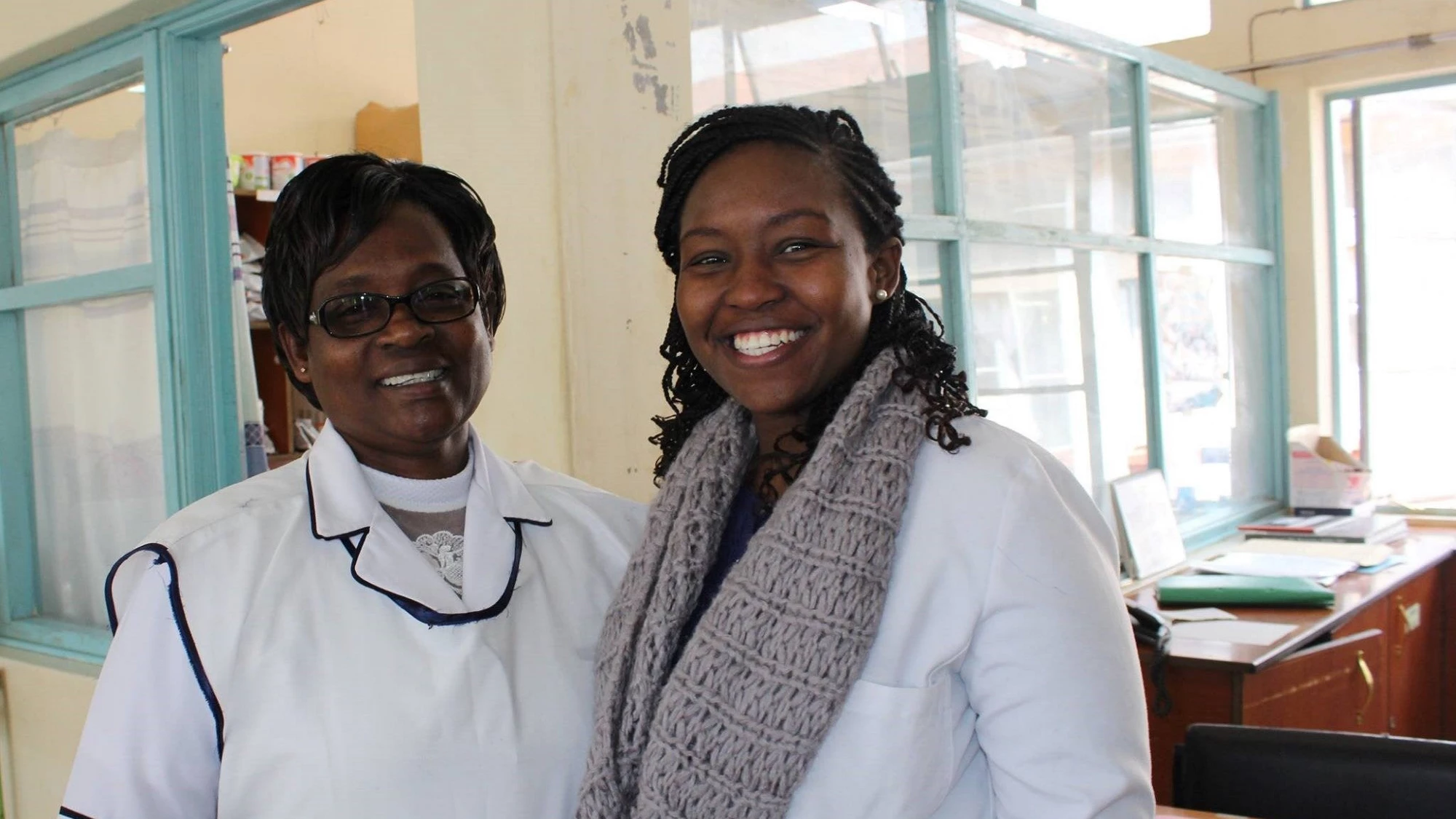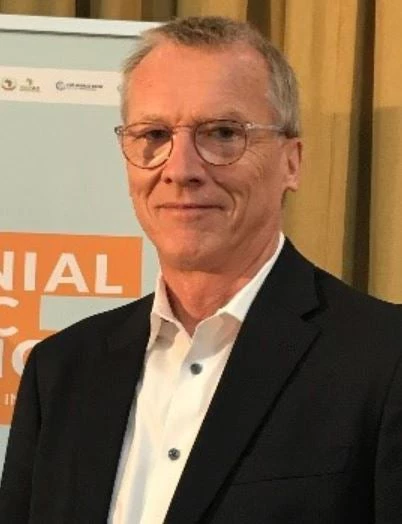 Health personnel at Machakos County Referral Hospital, Kenya. © Miriam Schneidman / World Bank
Health personnel at Machakos County Referral Hospital, Kenya. © Miriam Schneidman / World Bank
In 2013, when Victor was a secondary school student in Nairobi, he started to experience pain and swelling in his knee. Local and regional health centers couldn’t pinpoint the source of Victor’s problem, but doctors at Kenyatta National Hospital, one of Kenya’s leading public hospitals, recommended a biopsy.
But without health insurance, it took Victor’s family three months to secure a loan to pay for the procedure, which eventually diagnosed osteosarcoma, a bone cancer, and the remedy was amputation of Victor’s leg.
Post-operative expenses were far beyond what his father, a carpenter, and his mother, a fish seller, could afford. So they liquidated their assets and moved to a small village, where they had to seek other work. And, because of the cost, Victor opted not to undergo the essential chemotherapy his doctors prescribed.
The ordeal that Victor and his family endured is not uncommon to Kenyan cancer patients, who face delayed treatment and steep expenses, not all of which are covered by the country’s National Hospital Institutional Fund. It shows how cancer, one of the leading non-communicable diseases (NCDs) in Kenya, can have a crushing impact not just on those who suffer from them but also on the people around them.
Grappling with a growing burden
NCDs are responsible for about 71 percent of all deaths globally, killing about 41 million people each year, and cardiovascular diseases, cancers, diabetes and chronic lung diseases are the most common. NCDs are projected to be the leading cause of death worldwide for countries at all income levels, though low- and middle-income countries are least prepared to combat them.
And yet, only a paltry share – between 1 and 3%, depending upon the year – of overall development assistance for health goes to NCDs. In 2018, for example, that share was just 2%, or $778 million.
That’s one of the reasons the World Bank and Access Accelerated, a collaboration of industry, multilaterals and leading nonprofit partners, are working together to support a range of pilot projects, analytical work and knowledge sharing that will help developing countries, such as Kenya, deepen and expand access to health services and financial protection for NCD patients and their families.
Strengthening primary care
In Kenya, the World Bank and Access Accelerated currently support the AMPATH Primary Integrated Care For 4 Chronic Diseases (PIC4C) initiative, a pilot project to strengthen primary care services in the western counties of Busia and Trans-Nzoia. The project aims to prevent or manage hypertension, diabetes, breast, and cervical cancer – diseases that account for a large proportion of all deaths.
Because many Kenyans have limited access to quality primary care and forgo health insurance until they face a health crisis, they too often find themselves at Stage III or IV of a disease when the prognosis is not good. They make massive financial sacrifices to save themselves or their relative, selling assets, incurring debts or seeking costly care at private facilities.
Because specialized care in Kenya is concentrated in a few urban hospitals, there’s a need for strong primary health care to be widely available. With primary health care, patients can not only spot emerging health threats early, they can also get the expert support and guidance they need to prevent those illnesses in the first place.
PIC4C not only helps Kenyans screen and manage NCDs, “the project also actively promotes formation of patient support groups and helps them to start income generating activities and other economic empowerment interventions by providing start-up seed inputs,” says Dr. Jemima Kamamo, Principal Investigator and Lecturer, Moi University School of the National Hospital Insurance Fund.
With the emergence of COVID-19 (coronavirus) cases, face-to-face engagement has been scaled down or suspended, and PIC4C staff have proactively reached out to more than 6,200 patients to monitor their progress. Clinical services have also adopted new hygiene practices aimed at protecting themselves and their patients from coronavirus transmission.
Analyzing the challenge
In addition to pilot projects in several countries (El Salvador, Colombia, Vietnam), the World Bank collaboration with Access Accelerated supports analytical work to better understand the burden of disease and risk factors associated with NCDs (Kenya, Ghana).
A newly released study, Economic and Social Consequences of Cancer in Kenya, funded by Access Accelerated and supported by the World Bank, found that patients tended to have poor knowledge of cancer and sought health care late in the disease’s progression. They struggled to navigate the country’s health care system, as well as to get accurate and timely diagnoses and acquire sufficient health insurance coverage. Ultimately, the study calls for improvements in health coverage and the quality of health care – particularly early detection screening and diagnosis at the primary levels.
This analytic work is valuable to advocate on behalf of patients with these chronic conditions. With it, we can give a voice to these warriors and empower survivors to accompany others on their cancer journey.
Now 22, Victor faces a different life path than he envisioned before he lost his leg to cancer. But, introducing himself as a “proud bone cancer survivor,” he currently earns some income as a cancer advocate, and was able to recover the year of school he lost. He now hopes to become a teacher.
Victor’s plight is one that all too many Kenyans have faced. But with an increased focus on what it takes to reduce the challenge of NCDs, the hope is that fewer will face the same struggle in the years to come.



Join the Conversation